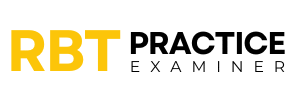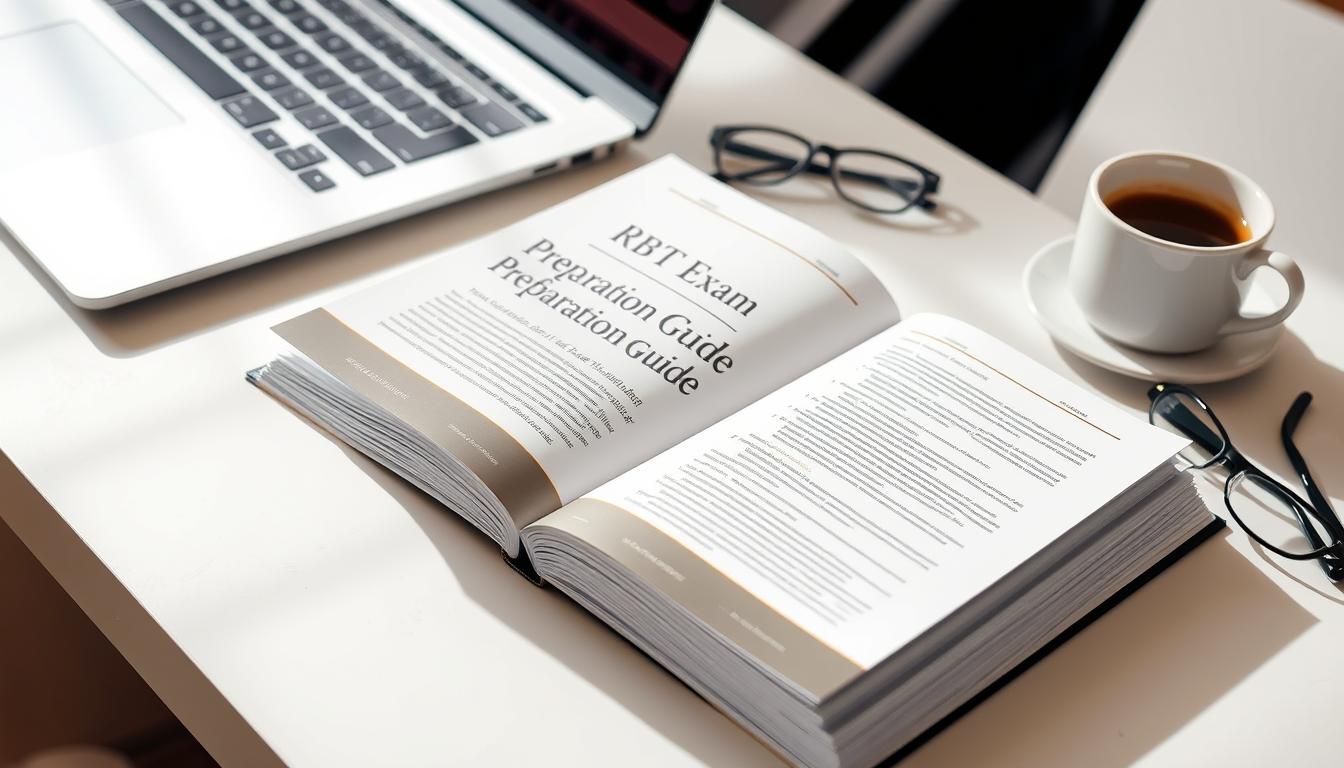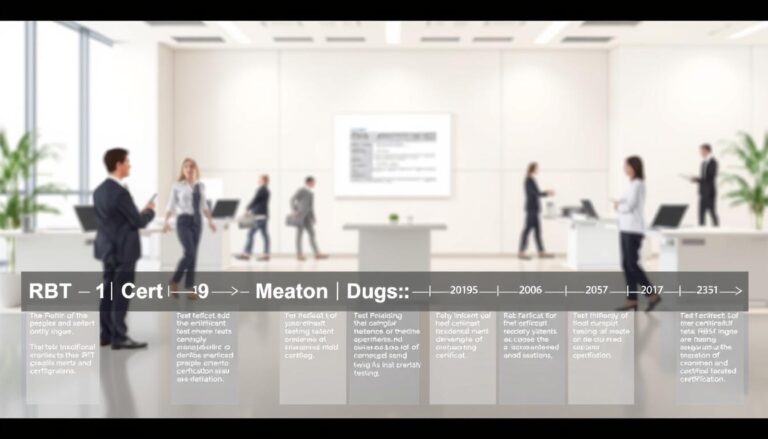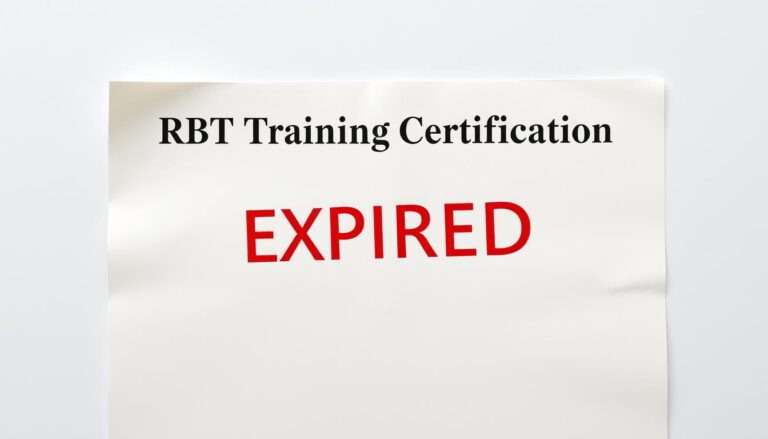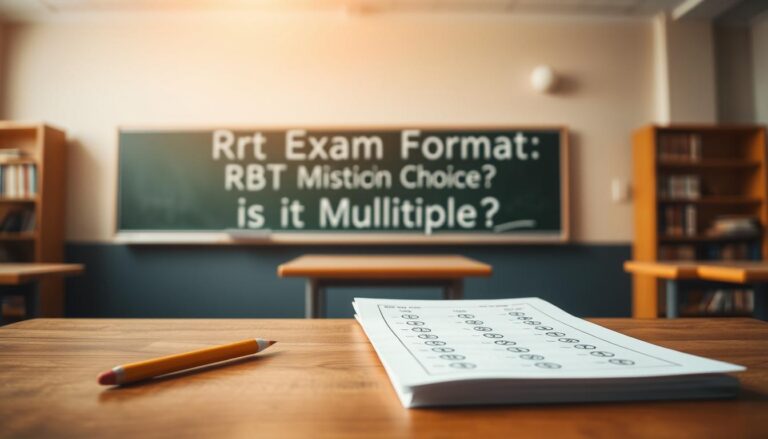RBT Exam Prep: Crucial Factors to Consider
Getting ready for the Registered Behavior Technician (RBT) exam needs careful planning and a deep understanding. Those aiming for this career must tackle many important steps to get certified.
Those looking to become RBTs need more than just studying. They must learn how to tackle the exam’s specific needs. This helps them create a study plan that boosts their chances of passing.
Preparing for the RBT exam is more than just memorizing facts. It’s about using a complete approach. This includes knowing a lot, being good at practical skills, and learning how to take tests well.
This guide will show you how to prepare well for the RBT exam. We’ll cover key strategies to make studying easier. This way, you’ll feel more confident and ready for your RBT certification.
We’ll break down hard topics into easy-to-understand parts. Knowing the exam’s layout, what it covers, and how to prepare will help you. You’ll be ready to tackle your RBT certification with focus and determination.
Understanding the RBT Exam Structure and Format
Getting ready for the RBT exam means knowing its structure and format well. Your study guide should focus on the exam’s main parts. This part will explain key points to help you feel ready for the exam.
Exam Duration and Question Types
The RBT exam tests your knowledge of behavior analysis. Knowing the exam’s layout is key. It usually has multiple-choice questions that check your skills in using behavioral techniques.
- Total exam duration: About 2 hours
- Number of questions: Around 85-90
- Question formats:
- Multiple-choice
- Scenario-based questions
- Practical application scenarios
Testing Environment Requirements
It’s important to know what to expect at the testing center. You need to bring certain documents and follow rules carefully.
- Bring a valid government-issued photo ID
- Arrive 30 minutes before your exam time
- Personal items must be stored in designated lockers
- Electronic devices are not allowed
Scoring System Overview
Knowing how the exam is scored is vital. The exam uses a scaled scoring system to decide if you pass.
- Passing score: Usually 70% or higher
- Raw scores are converted to a standardized scale
- Immediate score reporting after finishing the exam
By understanding these exam details, you’ll feel more confident. You can create a study plan that meets the RBT exam’s needs.
Essential Things to Consider While Preparing for RBT Exam
Getting ready for the Registered Behavior Technician (RBT) exam needs a smart plan. Those who pass know it’s more than just reading books. It’s about learning deeply and understanding how to apply what you learn.
When getting ready for the RBT exam, focus on a few key points:
- Know the task list inside out
- Make a study plan
- Use active learning methods
- Try different study tools
- Get hands-on experience
Managing your time well is key. Make a study plan that’s realistic and covers all the material. Break down hard topics into smaller parts. This helps you understand and remember better.
Getting mentally ready is just as important. Learn ways to handle stress and stay focused. Try deep breathing or meditation to calm your nerves before the exam.
Practical experience is vital for being ready for the RBT exam. Look for chances to work with behavior programs. This hands-on learning makes your book knowledge real and useful.
- Go to workshops and training
- Join in on supervised practice
- Meet with experienced RBTs
- Study real-life examples and scenarios
Remember, passing the RBT exam is about more than just knowing facts. It’s about combining knowledge, skills, and staying strong mentally.
Required Educational Background and Prerequisites
To prepare for the RBT exam, you need to focus on certain educational and professional needs. Knowing these requirements is key for those aiming to become Registered Behavior Technicians. It helps them move smoothly through the certification process.
Academic Qualifications
The RBT exam has specific educational needs. You must have:
- High school diploma or equivalent
- Minimum age of 18 years
- Clear background check
Training Requirements
Getting the right training is vital for RBT exam prep. Study materials stress the need for a 40-hour training program. This program is approved by the Behavior Analyst Certification Board (BACB). It teaches important skills and knowledge, such as:
- Measurement of behavior
- Assessment techniques
- Behavior reduction strategies
- Documentation procedures
Experience Prerequisites
Practical experience is also important for RBT certification. You need to do supervised fieldwork. This includes:
- Direct supervision by a Board Certified Behavior Analyst (BCBA)
- Minimum of 5% direct supervision during initial training
- Documented practical experience working with clients
Choosing the right RBT exam resources is key. Make sure to check the specific requirements. Also, ensure you have all the needed documents before scheduling your exam.
Creating an Effective RBT Study Schedule
Creating a good RBT exam study plan needs careful thought and a personal touch. Your journey starts with figuring out how to study well for the RBT exam. This means making a study schedule that matches your life and how you learn.
To make a solid RBT exam study plan, first check what you know and what you need to work on. Think about these important steps:
- Check your starting knowledge with practice tests
- Find out what you’re good at and what’s hard for you
- Set clear, achievable learning goals
- Give more time to the topics that are tough
When making your study schedule, focus on consistent and focused learning. Break your study into smaller, 1-2 hour blocks. Mix up your study methods to keep it interesting:
- Go over your textbooks
- Watch video tutorials online
- Do practice questions
- Join study groups or forums
Being flexible is key in your RBT exam study plan. You might need to change your schedule based on how you’re doing and other commitments. Keep track of how you’re doing and adjust your study plan if needed.
A good study plan isn’t about studying for hours. It’s about smart, focused learning that boosts your confidence and skills for the RBT exam.
Key Content Areas and Task List Breakdown
Getting ready for the RBT exam needs a smart plan to grasp its main topics. A good RBT exam study guide should cover the key areas that show a Registered Behavior Technician’s main skills. The exam checks if you know the skills needed for good applied behavior analysis work.
The RBT exam study materials usually focus on three main areas. These areas are the base of behavioral intervention techniques:
- Measurement and Assessment
- Behavior Reduction
- Documentation and Reporting
Measurement and Assessment
In this key area, you need to show you can collect and analyze behavioral data well. Important skills include:
- Using exact data collection methods
- Understanding how to graph and show behavioral data
- Knowing different ways to measure
Behavior Reduction
Behavior reduction strategies are key for the RBT role. You should be ready to show you know about:
- Finding target behaviors
- Creating behavior intervention plans
- Using ethical ways to reduce behavior
Documentation and Reporting
Keeping accurate records is very important in behavioral intervention. RBT exam study materials stress the need for:
- Precise record-keeping
- Clearly sharing behavioral observations
- Following professional documentation standards
Getting good at these areas takes hard study and real-world understanding. Your RBT exam study guide should give full coverage of these key areas. This will help you pass the exam.
Recommended Study Materials and Resources
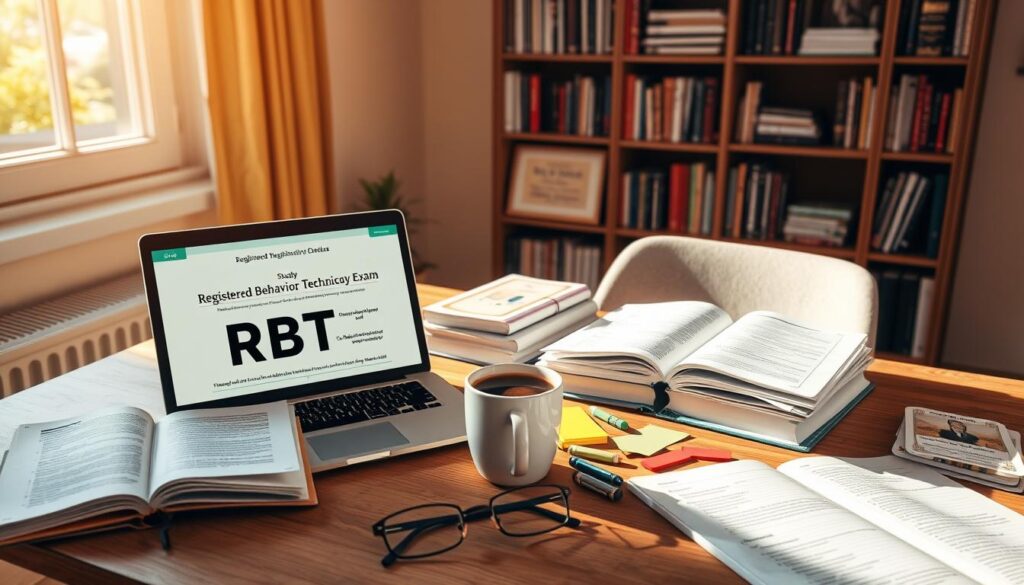
Getting ready for the RBT exam means picking the right study materials. Good RBT exam resources can really help you prepare and pass the test. The right mix of materials will help you understand the complex content better.
When looking for RBT exam study materials, here are some top picks:
- Official BACB Handbook – The main guide for exam content and rules
- Comprehensive study guides from well-known ABA training providers
- Online video tutorials and webinars
- Practice question banks and mock exams
- Digital flashcard apps
Professional groups and trusted training centers have special RBT exam resources. These cover key parts of applied behavior analysis. You’ll find:
- Detailed content outlines
- Comprehensive review materials
- Interactive learning modules
- Self-assessment tools
Digital platforms have changed how we study for the RBT exam. They offer flexible and easy-to-use learning options. Look for resources with:
- Mobile-friendly study guides
- Adaptive learning technologies
- Real-time progress tracking
- Personalized study plans
Spending on top-notch RBT exam resources can greatly improve your study plan. Choose materials that fit your learning style and cover the exam’s main topics.
Practice Tests and Mock Examinations
Getting ready for the RBT exam needs smart practice and full prep. Good RBT exam practice questions help you get the test format and boost your pass chances. With different practice tools, you can feel more confident and learn how to take the test well.
Online Practice Platforms
Many online sites have detailed RBT exam practice questions that feel like the real test. These tools offer:
- Realistic exam simulations
- Timed practice tests
- Detailed answer explanations
- Performance tracking tools
Self-Assessment Tools
Knowing yourself well is key to passing the RBT exam. You can use special tools to find out:
- What you’re good at in certain areas
- What you need to work on
- Where you should study more
Performance Tracking Methods
| Tracking Method | Benefits | Recommended Frequency |
|---|---|---|
| Progress Diagnostics | See how you’re improving | Weekly |
| Practice Test Scoring | Check if you’re ready for the exam | Bi-weekly |
| Skill Gap Analysis | Focus on areas to get better | Monthly |
Pro tip: Keep practicing and checking yourself regularly. Use many practice tools to make a strong study plan.
Time Management Strategies for Exam Day

Mastering time management is key to passing the RBT exam. Good strategies help you feel confident and ready for the test. Being well-prepared and strategic is essential to overcome time challenges during the RBT certification test.
Here are some top RBT exam preparation tips for managing your time well:
- Review the exam structure beforehand to understand question distribution
- Practice timed mock exams to develop rhythm and pacing
- Allocate specific time blocks for different question types
- Learn to quickly identify and prioritize easier questions
When you’re taking the exam, use smart techniques to manage your time. First, quickly scan the whole test to know what’s coming. Mark questions you find challenging and return to them later. This way, you can focus on easier questions first.
Make a plan by dividing the exam time by the number of questions. This keeps you moving at a steady pace. Try to spend about 1-1.5 minutes on each question. Leave some extra time for reviewing your answers.
- Wear a watch or use the provided timer
- Check your progress every 15-20 minutes
- Skip complex questions and return to them later
- Use remaining time to review and double-check answers
It’s also important to stay calm and focused. Deep breathing and positive self-talk can help with test anxiety. They keep you concentrated when time is tight.
Common Mistakes to Avoid During Preparation
Getting ready for the RBT exam needs careful planning and knowing common mistakes. Knowing these can really help your study plan and boost your success chances.
Study Approach Pitfalls
When studying for the RBT exam, many make big mistakes. These mistakes can hurt your prep. Here are key things to watch out for:
- Over-relying on memorization instead of understanding core concepts
- Neglecting practical application of behavioral analysis principles
- Skipping practice scenarios that simulate real-world situations
- Failing to create a structured and consistent study schedule
Test-Taking Errors to Avoid
Doing well on the RBT exam is more than just studying. You also need good test-taking skills.
- Rushing through questions without careful reading
- Second-guessing initial answers unnecessarily
- Becoming anxious and losing focus during the exam
- Not managing time effectively during the test
By knowing and fixing these mistakes, you can make a better study plan. This will help you feel more confident when taking the RBT exam.
Mastering Technical Terminology and Concepts
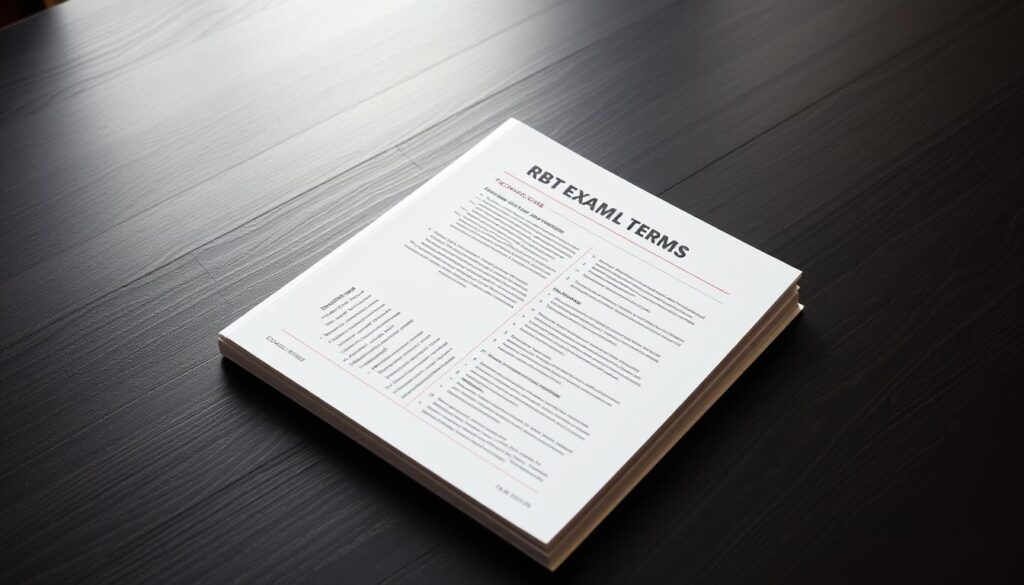
Understanding technical terms is key to doing well in your RBT exam study guide. Applied behavior analysis needs a deep grasp of special words. It’s more than just memorizing.
To build a strong technical language base, try these strategies:
- Create flashcards with key ABA terms and their definitions
- Practice using terminology in context
- Group related concepts to enhance understanding
- Use mnemonic devices for challenging terms
When making RBT exam study materials, focus on main ideas. Breaking down complex terms into digestible components makes abstract language useful.
Key areas to focus on include:
- Behavioral measurement terminology
- Intervention strategy vocabulary
- Data collection and analysis language
- Ethical practice terminology
Learning technical language well means staying active with it. Join study groups or online forums for ABA discussions. Use diagrams and concept maps to make hard terms easy to remember.
It’s not just about memorizing. It’s about really getting the principles and how they work in real situations.
Mental Preparation and Stress Management
Getting ready for the RBT exam is more than just studying. It’s also about getting your mind ready. People who do well know that being mentally prepared can really help.
Anxiety Reduction Techniques
Using good stress management can make you feel more confident. Here are some ways to reduce anxiety:
- Practice deep breathing exercises to calm your nervous system
- Use visualization techniques to imagine yourself doing well on the exam
- Develop positive self-talk strategies
- Create a consistent pre-exam relaxation routine
Building Test-Taking Confidence
Feeling confident when taking tests is key. Here are some ways to boost your confidence:
- Complete multiple practice exams under timed conditions
- Focus on your strongest content areas
- Review challenging concepts regularly
- Simulate the actual exam environment during practice tests
| Stress Management Strategy | Impact on Exam Performance |
|---|---|
| Regular Sleep Schedule | Improves mental clarity and focus |
| Balanced Nutrition | Enhances cognitive function |
| Daily Physical Exercise | Reduces anxiety and increases mental resilience |
Your mental state is very important for doing well on the RBT exam. By managing stress and feeling more confident, you’ll have a better chance of passing.
Last-Minute Review Strategies
As your RBT exam date gets closer, using smart last-minute review methods can really help. You need a good plan for these final days. It should be focused and balanced.
Focus on key areas that help you remember more and feel less stressed. Here are some top tips for the last stretch:
- Create condensed summary sheets highlighting core concepts
- Utilize mnemonic devices for quick information recall
- Practice targeted review of challenging task list areas
- Conduct rapid self-quizzing sessions
Make a structured review plan that targets your weak spots. Prioritize understanding over memorization. Focus on linking theory to practice.
| Review Strategy | Time Allocation | Focus Area |
|---|---|---|
| Concept Mapping | 30-45 minutes | Key Behavioral Principles |
| Practice Questions | 1-2 hours | Weak Knowledge Domains |
| Mental Rehearsal | 15-20 minutes | Test-Taking Strategies |
Don’t forget the importance of rest in your final prep. Mix short study times with enough sleep and stress relief. Your mental state is as key as your knowledge.
Go into the exam feeling confident. You’ve worked hard on a review plan that covers both your knowledge and well-being.
Conclusion
Getting ready for the RBT exam needs a solid plan. You must know the exam’s layout, create a study schedule, and learn key behavior analysis concepts. Using the tips from this guide can really help you pass.
Think about what you need to do to get ready for the RBT exam. Start with a strong knowledge base, practice with mock tests, and work on your test-taking skills. Your prep should cover both the technical and practical sides of behavior analysis.
The RBT certification is more than a test—it opens doors to a fulfilling career. Be dedicated, use many study tools, and stay positive. Your hard work will lead to success in this field.
Never stop learning and always want to help others. Stay focused, believe in yourself, and trust your prep work. You’ll do great as a Registered Behavior Technician.
